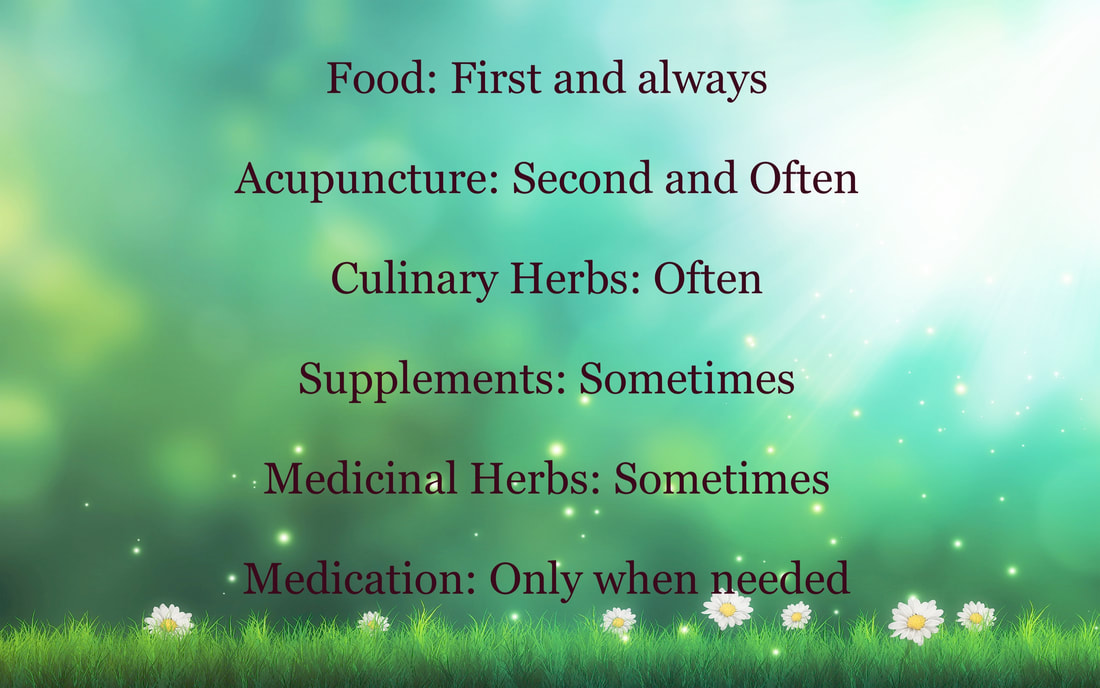I provide acupuncture treatment and nutritional support to help you to
achieve a balanced level of hormone for optimal health and to live a vibrant life.
Knowing how normal hormone work together helps to understand the symptoms of premenstrual syndrome (PMS), perimenopause, and menopause. Symptoms are often the result of too much or too little hormone(s).
PMS
Common symptoms include depression, mood swings, anger, anxiety, feeling overwhelmed, difficulty concentrating, irritability and tension, acne, tender breasts, bloating, and feeling tired. In addition, many women suffer from lower abdominal cramps before, during menstrual bleed.
Perimenopause
Hormone levels fluctuate as a result of fewer ovulations, so less progesterone is produced in the second half of the menstrual cycle. Periods can be erratic, skipped, or have heavy bleeding /clots. Symptoms result from the change in the ratio of estrogen to progesterone, so the imbalance creates the symptoms.
Menopause
Estrogen is no longer produced by the ovaries and is made in smaller amounts by the adrenal glands and in fat tissue. Estrogen is still produced in the body, but in lower amounts than younger cycling women. The most significant hormone change of menopause is the lack of progesterone, so a time of estrogen dominance and low progesterone.
For men: andropause
It's not "male menopause," exactly — for one thing, it doesn't happen to all men — but about 20 percent of men over age 60 and 30-50 percent of men over age 80 will experience andropause, a significant decline in testosterone production.
achieve a balanced level of hormone for optimal health and to live a vibrant life.
Knowing how normal hormone work together helps to understand the symptoms of premenstrual syndrome (PMS), perimenopause, and menopause. Symptoms are often the result of too much or too little hormone(s).
PMS
Common symptoms include depression, mood swings, anger, anxiety, feeling overwhelmed, difficulty concentrating, irritability and tension, acne, tender breasts, bloating, and feeling tired. In addition, many women suffer from lower abdominal cramps before, during menstrual bleed.
Perimenopause
Hormone levels fluctuate as a result of fewer ovulations, so less progesterone is produced in the second half of the menstrual cycle. Periods can be erratic, skipped, or have heavy bleeding /clots. Symptoms result from the change in the ratio of estrogen to progesterone, so the imbalance creates the symptoms.
Menopause
Estrogen is no longer produced by the ovaries and is made in smaller amounts by the adrenal glands and in fat tissue. Estrogen is still produced in the body, but in lower amounts than younger cycling women. The most significant hormone change of menopause is the lack of progesterone, so a time of estrogen dominance and low progesterone.
For men: andropause
It's not "male menopause," exactly — for one thing, it doesn't happen to all men — but about 20 percent of men over age 60 and 30-50 percent of men over age 80 will experience andropause, a significant decline in testosterone production.
|
Monday, Tuesday, Thursday, Friday
|
|

